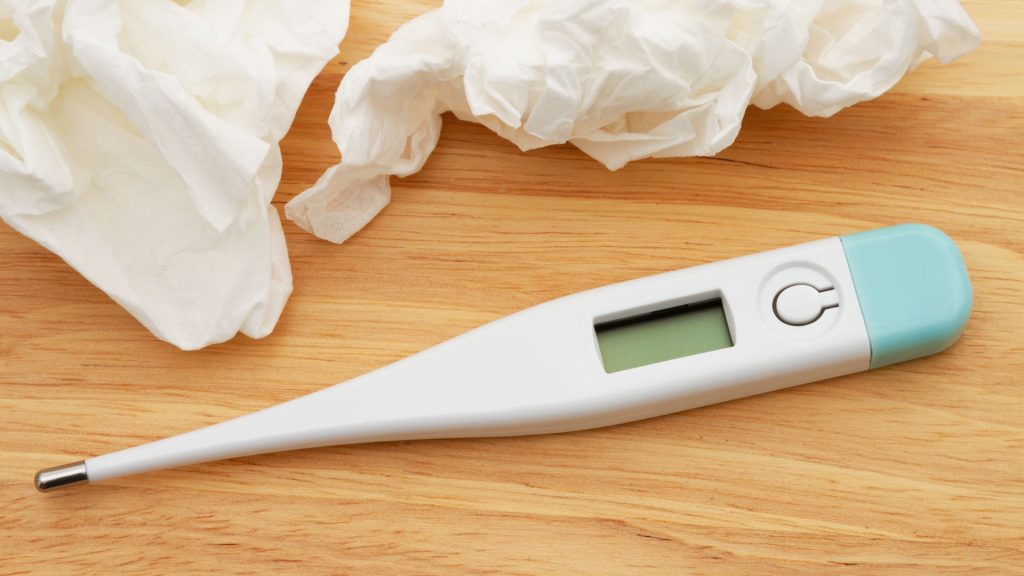Learn what happens in your body when you’re under stress
- READING TIME 8 MIN
- PUBLISHED February 13, 2024
- AUTHOR Donna
Key takeaways
- While brief moments of stress can be beneficial, persistent stress can test our overall well-being and potentially lead to health issues.
- Chronic stress can also impact our mental health and brain power. It can make you worry more, while decreasing motivation, capacity to focus and confidence.
- By embracing different strategies – from exercise to lifestyle changes and dietary adjustments – we can navigate stress with more clarity and balance. Learn how exactly.
Learn what happens in your body when you’re under stress
Stress, often characterised as the “silent epidemic” of modern times, is the body’s way of responding to life’s demands and challenges. It’s a natural reaction, designed to help us confront or flee from potential threats.
However, in today’s world, stressors extend beyond physical dangers and often come from daily pressures like work, relationships and finances. While short-term stress can be beneficial, pushing us to adapt and grow, chronic stress can negatively impact our mental and physical health. If you’re seeking to live a balanced and healthy life, it’s critical to recognize the signs of chronic stress and try to find ways to manage it.

Fight of flight: our basic instinct
Faced with stress, our body activates its built-in defence mechanism known as the “fight or flight” response, all under the guidance of the central nervous system (CNS). The hypothalamus, a small region of the brain that regulates vital bodily functions, signals our adrenal glands to trigger a rush of adrenaline and cortisol.1
The beauty of this intricate system is its expected return to calm after the stressor has passed. Ideally, the hypothalamus would bring everything back to a balanced state. However, when stress lingers or the CNS finds it challenging to switch off this alert mode, we remain anchored in this elevated state of readiness. Over time, such prolonged alertness can push us into patterns that may not serve our best interests, impacting our well-being. By understanding our body’s ‘fight or flight’ intricacies, we can also better navigate the ebb and flow of life’s stresses.
How chronic stress influences our hormones and immunity
When you’re stressed for a long time, your endocrine system, responsible for producing and regulating hormones in the body, goes into overdrive. This system involves three main parts: two in your brain – the hypothalamus and the pituitary – and one near your kidneys – the adrenal glands, forming what is known as the hypothalamic–pituitary–adrenal axis. In response to stress, the axis activates a release of cortisol, a hormone that typically induces stress.2
In the right amounts, cortisol is beneficial. It acts like your body’s natural energy booster, enhancing your energy, sharpening your response time and adjusting how your body processes sugars and fats.
However, too much cortisol in our bodies, often a consequence of persistent stress, can lead to health problems. Not only does it disrupt metabolism and weaken bones, but it can also make a significant dent in the immune system’s defences.3
This weakened state of immunity could mean that the body takes longer to heal wounds, becomes more prone to catching colds and other infections and might even see an increase in conditions where the body mistakenly attacks its cells, known as autoimmune disorders.4

Exploring the most common health issues of stress
Stress manifests itself in various physical ways throughout our body. Recognizing these signs is the first step towards managing its effects effectively:5
- Gastrointestinal problems: Stress-induced heartburn and acid reflux can be complemented by an imbalance in gut flora, potentially exacerbating conditions like irritable bowel syndrome (IBS) and leading to issues like diarrhea, constipation, nausea, vomiting and stomach ache.6, 7
- Cardiovascular strain: Chronic stress not only leads to an increased heart rate and elevated blood pressure, but it can also pave the way for arterial plaque buildup, heightening the risk of conditions such as atherosclerosis.8
- Respiratory issues: Stress accelerates breathing patterns and, in more severe cases, might lead to hyperventilation. For those naturally inclined, it can contribute to panic attacks and exacerbate conditions like asthma or emphysema.9
- Muscular tension: Stress prompts our muscles to tense up, causing headaches, back and shoulder pain and body aches. If such tension persists, it might progress into chronic pain syndromes or intensify conditions like fibromyalgia – chronic pain disorder.10
- Disruptions in male+ reproductive health: While immediate consequences include reduced testosterone levels and decreased sperm production, chronic stress can lead to long-term hormonal imbalances, erectile dysfunction and increased susceptibility to infections in organs like the prostate and testes.11
- Menstrual cycle irregularities in women+: Chronic stress doesn’t just lead to irregular, heavier or more painful periods, but can also cause amenorrhea or absence of menstruation, intensify menopause symptoms and pose potential fertility challenges.12, 13
- Increased blood sugar production: The liver’s response to stress is to produce extra glucose, but over time, an overburdened system might struggle to manage this surge, leading to insulin resistance and raising the risk for type 2 diabetes.14
- Sleep disruptions: Stress often plays a major role in the quality and quantity of sleep we receive. It can lead to insomnia, frequent nighttime awakenings or restless sleep. Over time, this lack of restful sleep exacerbates stress, creating a negative feedback loop.15
- Weight gain or loss: The disruption of metabolic processes and appetite regulation due to stress can also lead to changes in weight. Prolonged imbalances might even pave the way for conditions like metabolic syndrome.16, 17
Impact on mental health and brain power
Stress, particularly when prolonged, can have important implications on our psychological framework too. It manifests as a subtle unease, leading you to reflect more on past decisions or anticipate the future with growing concern. This building tension can evolve into deeper feelings of sadness, making you less interested in activities and hobbies you previously enjoyed.

At the same time, you might notice it’s harder to think clearly, stay focused or make decisions. Your motivation may start to dip and you could feel more irritable or sensitive. As the effects of stress grow, your confidence could drop, leading you to avoid or delay tackling challenging tasks.
This shift in our mindset doesn’t just change how we talk to ourselves, but also how we connect with others. It might even change how we show up in our friendships or work relationships. Noticing these small changes in our behaviour and feelings is important because it helps us take steps to look after ourselves and get the support we might need.
Mastering the tools and methods to combat stress
Stress is often intertwined with our daily routines, occasionally catching us off guard. But with the right approach and tools, we can navigate its challenges, increase resilience and ensure a balanced life. This journey is usually deeply personal, but some universal strategies have been proven effective for many.
- Physical activity: Engaging in regular exercise, from brisk walking to yoga or more intense activities like cycling can serve as a natural stress reliever. Physical activity promotes the production of endorphins, our body’s natural mood elevators.18
- Diet and nutrition: Consuming a well-balanced diet rich in whole foods, such as fruits, vegetables, lean proteins and whole grains, can have a direct impact on mood and energy levels. Foods rich in omega-3 fatty acids, magnesium and certain vitamins like B vitamins can combat stress. On the other hand, try to minimize the intake of caffeine, sugar and processed foods, which can exacerbate stress and lead to energy crashes.19, 20 Supplements can also play an important role – find out which and how much in our recent article.
- Quality sleep: A consistent sleep routine is paramount. Ensure you get adequate, restful sleep by creating a conducive environment and incorporating calming pre-sleep habits like reading or listening to soothing music.21
- Mindfulness and meditation: Techniques like deep breathing exercises, meditation and progressive muscle relaxation can anchor your mind, reducing anxiety and fostering tranquillity.22
- Social connections: Engage with loved ones. Sharing your feelings with someone you trust, whether it’s a close friend, family member or therapist, can make a profound difference in managing stress.23
- Set boundaries: In both personal and professional spaces, it’s essential to establish clear boundaries. Recognize when to say “no” and avoid overcommitting to prevent burnout.24

Life has its ups and downs, and while stress is a part of the journey, it shouldn’t define us. By understanding and addressing it, we’re taking care of ourselves and those around us. So, let’s tackle each day with a proactive mindset while being mindful of employing different strategies to handle what comes our way.
REFERENCES
- https://www.health.harvard.edu/staying-healthy/understanding-the-stress-response
- https://www.ncbi.nlm.nih.gov/pmc/articles/PMC3860380/
- https://my.clevelandclinic.org/health/articles/22187-cortisol
- https://health.umms.org/2020/11/10/stress-immune-system/
- https://www.ncbi.nlm.nih.gov/pmc/articles/PMC5579396/
- https://www.ncbi.nlm.nih.gov/pmc/articles/PMC4202343/
- https://pubmed.ncbi.nlm.nih.gov/15184707/
- https://www.ncbi.nlm.nih.gov/pmc/articles/PMC6460614/
- https://www.ncbi.nlm.nih.gov/pmc/articles/PMC2104758/
- https://www.ncbi.nlm.nih.gov/pmc/articles/PMC5546756/
- https://www.ncbi.nlm.nih.gov/pmc/articles/PMC6260894/
- https://www.betterhealth.vic.gov.au/health/conditionsandtreatments/menstruation-amenorrhoea
- https://www.utphysicians.com/how-stress-can-affect-your-menstrual-cycle/
- https://www.ncbi.nlm.nih.gov/pmc/articles/PMC9561544/
- https://www.apa.org/news/press/releases/stress/2013/sleep
- https://www.ncbi.nlm.nih.gov/pmc/articles/PMC9315484/
- https://www.ncbi.nlm.nih.gov/pmc/articles/PMC3428710/
- https://www.mayoclinic.org/healthy-lifestyle/stress-management/in-depth/exercise-and-stress/art-20044469
- https://health.clevelandclinic.org/eat-these-foods-to-reduce-stress-and-anxiety/
- https://nutrition.org/nutrition-and-stress-a-two-way-street/
- https://www.ncbi.nlm.nih.gov/pmc/articles/PMC6984036/
- https://www.apa.org/topics/mindfulness/meditation
- https://www.apa.org/topics/stress/manage-social-support
- https://www.wellandgood.com/stress-boundaries/&sa=D&source=docs&ust=1696075800618631&usg=AOvVaw3cWN2m89lXuwzripNPazAE
RELATED ARTICLES
Explore more
Feed your curiosity with more content. Dive deeper and explore our selected articles, curated just for you.



